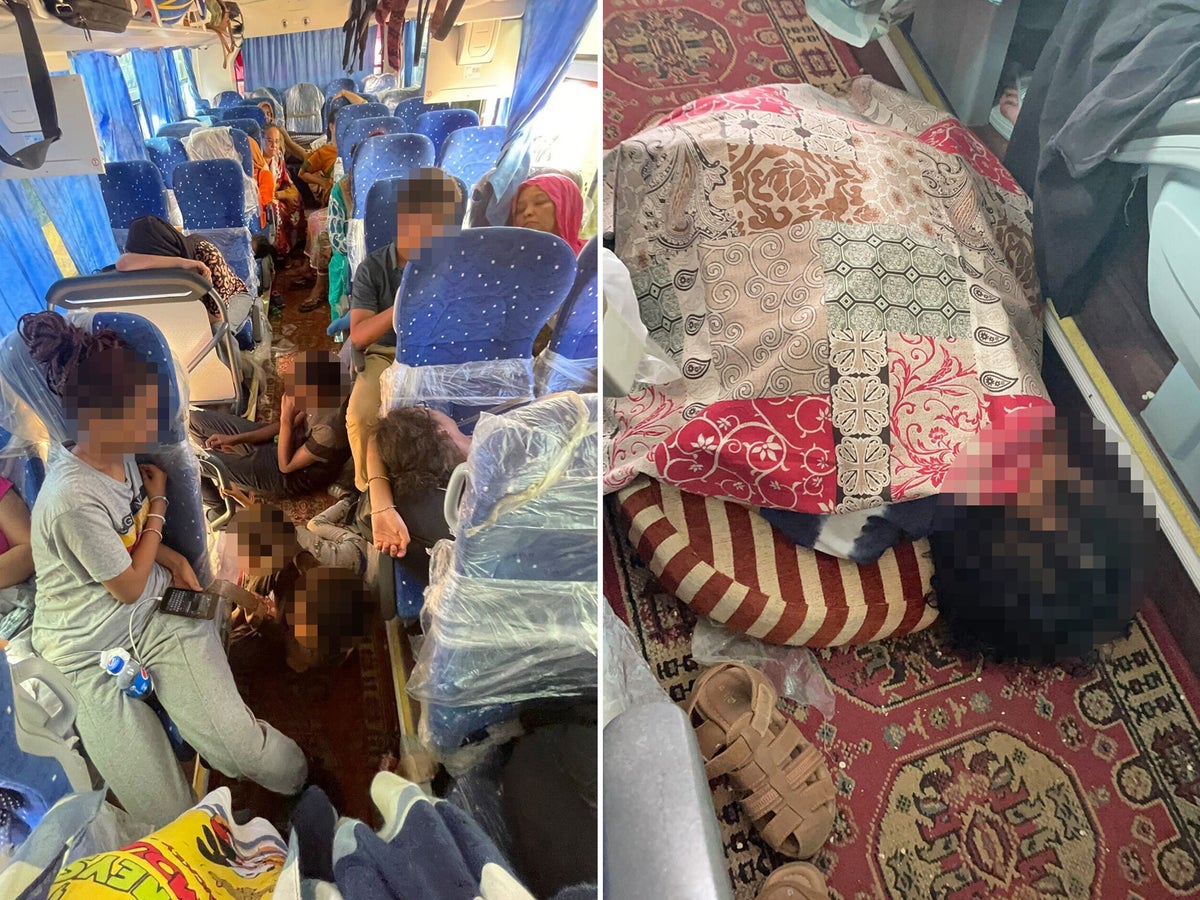
British families fleeing Sudan have described dodging heavy gunfire and bombing in their bids to escape the wartorn country after the Foreign Office “failed” to secure safe routes out.
Many have spent thousands to escape the country safely, with the first flights evacuating UK nationals on Tuesday afternoon.
Dr Lina Badr, 42, an NHS gynaecologist in Birmingham was visiting family in Khartoum with her three children, when she found herself trapped in the epicentre of the fighting between Sudan’s warring top generals.
She is one of an estimated 2,000 citizens in Sudan who registered with the Foreign Office for help since the conflict erupted 12 days ago.
Despite desperate pleas to the British authorities, the mother of three received no communication bar automatic emails telling them to shelter in place. She said they repeatedly tried to call the hotlines but none of them worked.
After stray bullets ripped through her family’s living room, food and supplies ran out and her two-year-old became sick, she took matters into her own hands to save their lives.
“I completely lost hope in the system. Until this morning, I have not received anything about a solid evacuation plan. Just advice to stay indoors and call for any psychological support,” she told The Independent from the border in Egypt where she was hoping to cross to safety.
“With no connection we had to make a decision. We took the risk”.
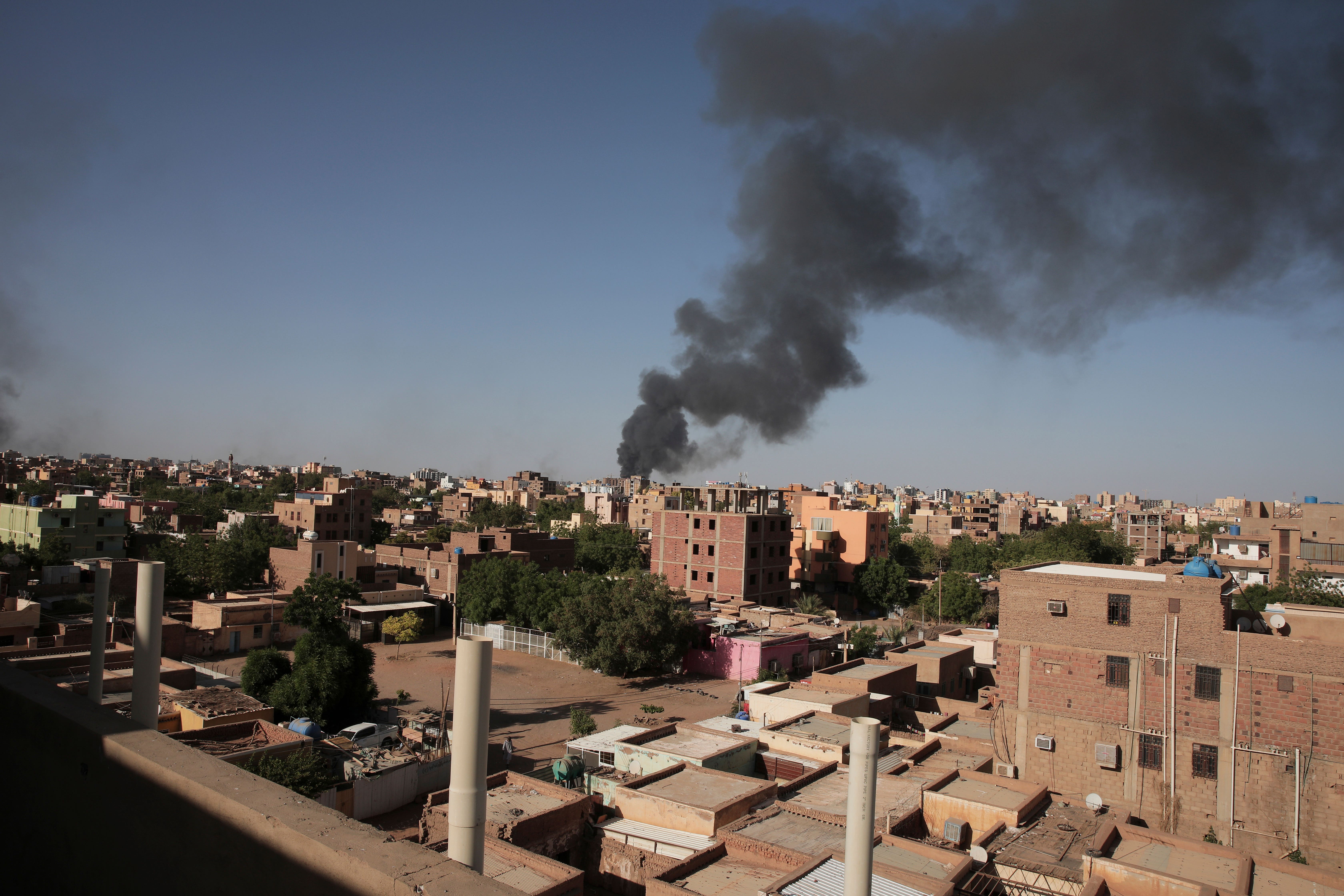
Together with her cousin, a dentist from Brighton who was also visiting the Sudanese capital for the holidays, the British mothers were forced to hire a bus for nearly $20,000 as prices of vehicles and fuel have soared amid the escalating violence.
They packed a few biscuits and crisps they had left and with 11 children on board drove themselves 24 hours to the border with Egypt. They relied on information shared on Sudanese WhatsApp groups for a route.
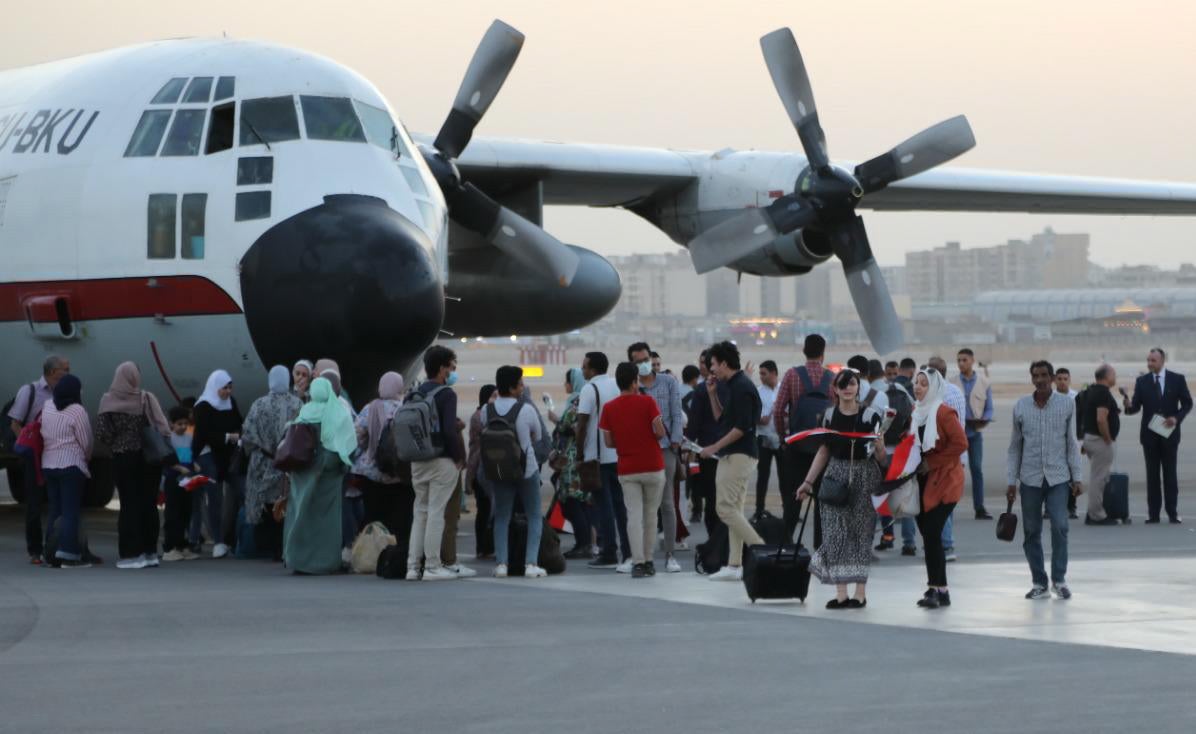
“On our way out, we stopped at someone’s house who was going to supply us with cash. At his doorstep in the middle of discussion there were heavy guns shooting and we had to abandon the whole thing, jump into the bus and drive out quickly so we were not able to get money,” she explained on the phone.
“We were later told that the area we left was hit badly. Some of us … were not able to bring passports, some have passports which are expired.”
She said at different checkpoints Sudanese soldiers and their rivals from the Rapid Support Forces boarded the bus to interrogate them along the way, terrifying her children, who are aged 15, 11 and two.
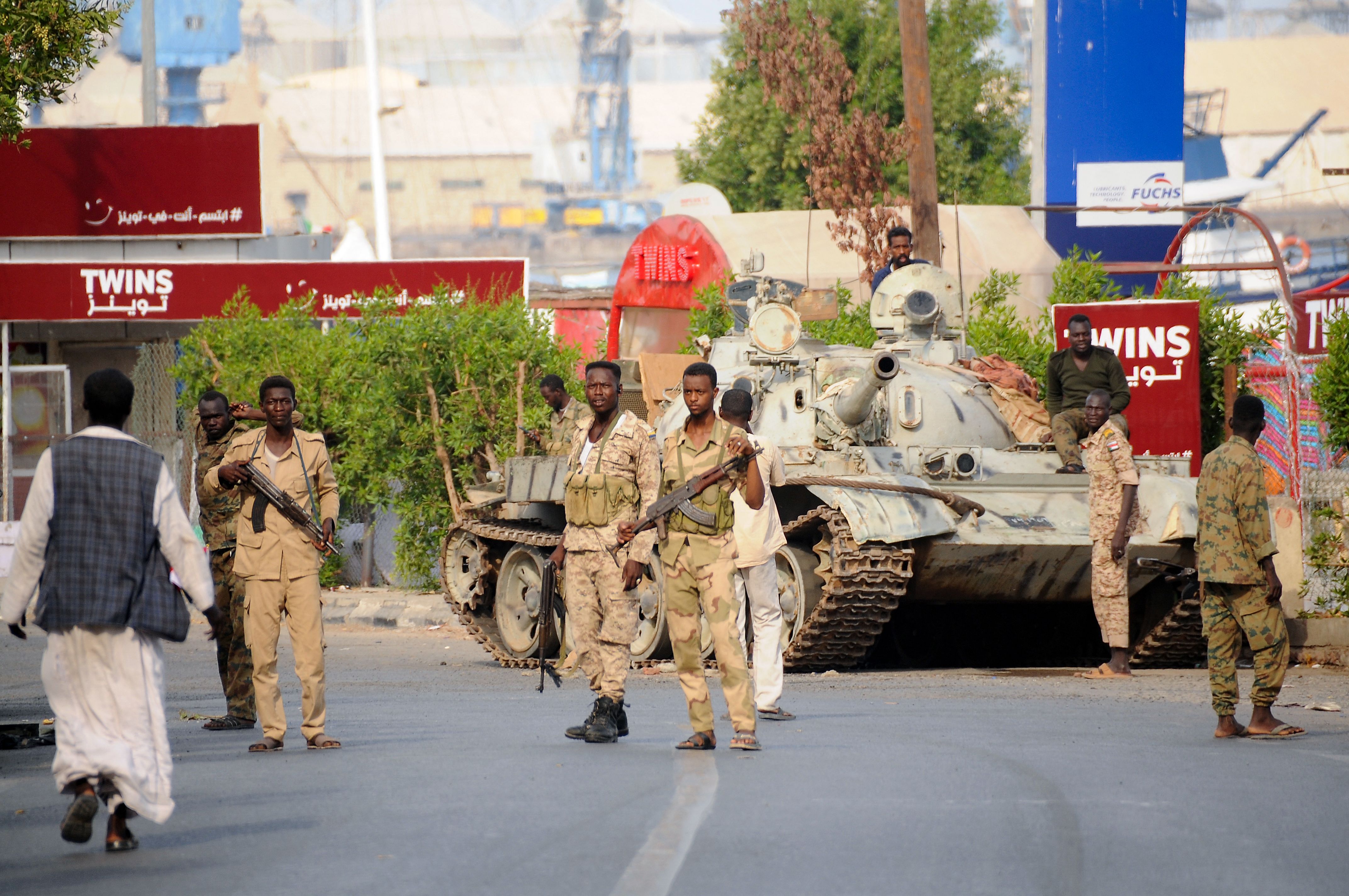
Her husband, Ousama Suliman, also an NHS doctor in Birmingham, said he was worried the family would be abducted along the way.
“We were told the RSF was looking for doctors to treat their wounded and had been taking fleeing medics off evacuation buses,” he told The Independent from his home in Birmingham.
“There are several other families I know who are making the same journey. They’ve left everything behind all the bags, everything.”
Dr Badr’s experience was echoed by other British nationals who have also fled on their own.
William, a teacher from Coventry, who was also waiting at the Egyptian border said it took five days for the UK authorities to even “notice we were here in Khartoum” despite the fact that his area came under helicopter rocket fire.
After British diplomats were airlifted out of the country but no evacuation plan was announced, the school where he has worked arranged a bus to navigate a war zone and ferry nearly 50 multinational staffers to a safe place.
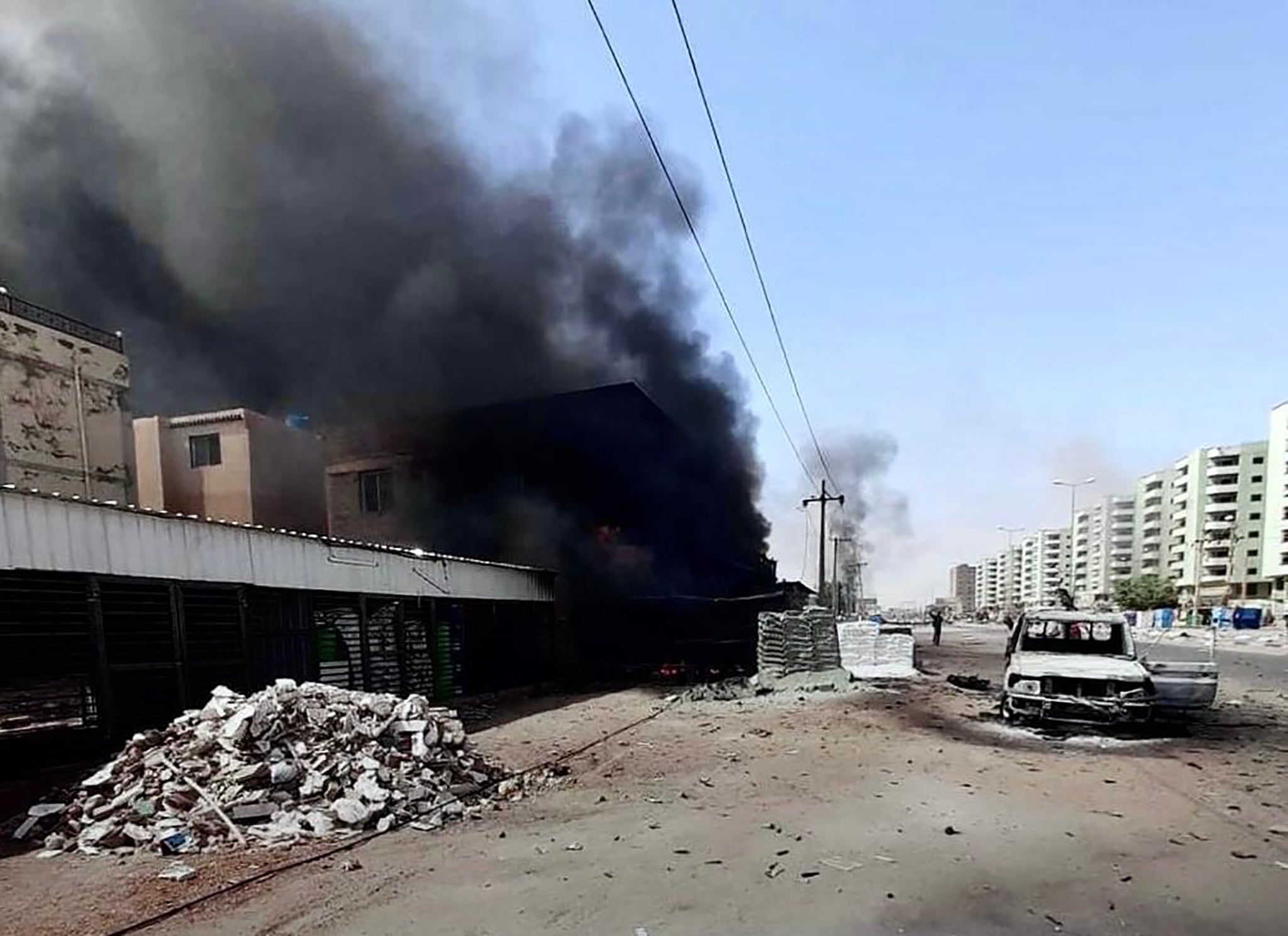
With fighter jets roaring overhead, missiles and bombs landing just a few kilometres from them they were forced to hide in their bedrooms until they could get out.
“It’s been armageddon. Some parts [of Khartoum] are now flattened. It was imperative just to get out. There’s no way people want to stay in Khartoum anymore,” William told The Independent, asking for his surname to be withheld for security reasons.
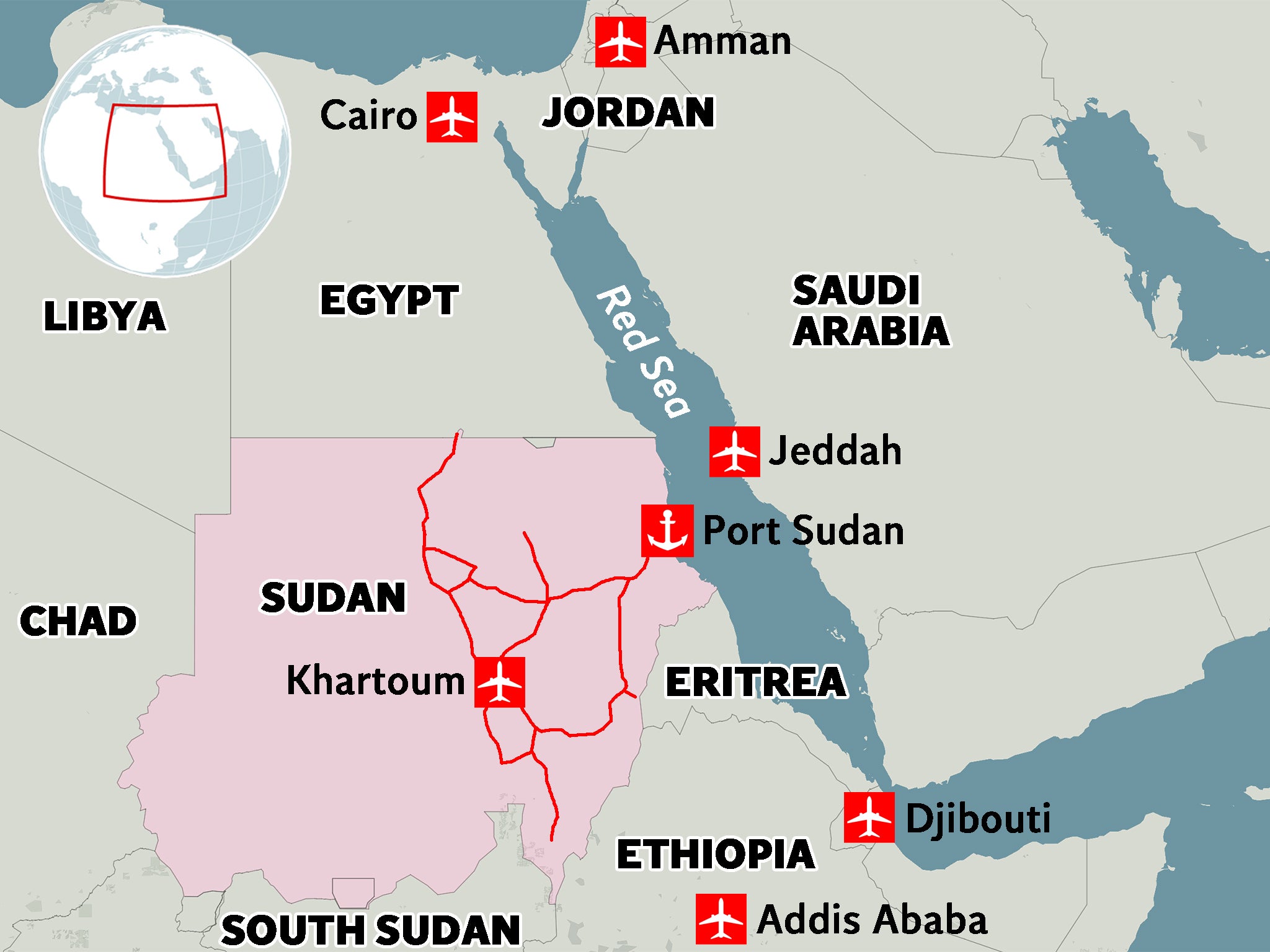
He said the journey to the border with Egypt had taken them 24 hours and there was shooting along the way.
“It was an overnight and difficult drive,” he added.
“I haven’t had a message from the embassy. The Brits need assurance that something is going to happen.”
The British government has come under fire for its slow response to the crisis, particularly after several other countries including the United States, Gulf states like Qatar and European nations had successfully evacuated their nationals.

Foreign secretary James Cleverly defended the actions of the Foreign Office on Tuesday saying “the circumstances for each individual nation are different”.
“There are considerably more British nationals in Sudan than other countries have got," he said.
He added that the RAF had now started evacuating citizens using a shaky ceasefire in place between the warring factions. But he admitted that civilians had to make the risky journey on their own to the airbase near Khartoum – that is reportedly being secured by German forces.
He warned it is "impossible" to know how long the pause in the fierce fighting will last and that “the situation remains dangerous, volatile and unpredictable”.
"It is impossible to predict how long any other route to evacuation will remain open,” he added.
The government is also facing mounting criticism for not providing emergency visas for immediate relatives of British citizens, so that families are not separated.

One NHS doctor, who asked for her identity to be withheld for security reasons, told The Independent her father, also an NHS doctor who was shot in the leg in Khartoum, and her sister have been told they would have a place on an evacuation convoy. However, her 87-year-old grandmother, who does not have British citizenship and is sheltering with them, would not.
“The UK cannot expect my father, who is wounded, to evacuate leaving his 87-year-old mother on her own in the middle of war in Khartoum,” she said in desperation.
“It’s inhumane,” she added.
Questions have also been raised as to why the British government got its diplomats out first, apparently abandoning citizens.
Azhar Sholgami, a researcher at Cornell University in the US told The Independent her British grandfather Abdalla Sholgami, a retired businessman, 85, has been left trapped on the frontline without water or food despite living directly opposite the British embassy. “The RSF raided and looted his home, taking food and water. There is no electricity or phone connection so we have no contact with him,” she said.
“We have called different people in the embassy to help for the last eight or nine days,” she added. Amid reports the RSF has also been abducting doctors and looting ambulances, the Red Cross has been unable to rescue the pair. Family members and Sudanese civilian volunteers have been shot at trying to access the street. “My grandfather always said he is happy to live next to the British embassy because if anything goes wrong they are just next door. It’s super disappointing.
My grandfather always said he is happy to live next to the British embassy because if anything goes wrong they are just next door. It’s super disappointing.— Azhar Sholgami, whose British grandfather is trapped on frontline with no water
“The least they could have done is knock on the door and given him a single bottle of water when they left but they didn’t even do that,” she added.
Back in Birmingham, Dr Suliman, who is anxiously waiting for the return of his family, said with so little help on hand the British in Sudan have no choice but to try to flee the country themselves.
“Everyone I know has pretty much made the journey by road to Egypt. Most of the people who have registered with the Foreign Office are not going to be there to evacuate,” he added.
”When the hotline numbers don’t work, when you can’t get through to anyone and then you hear the diplomats, the embassy has been evacuated, you panic.”
Back at the Egyptian border, Dr Badr said she feared many were forced to leave their passports behind in the fighting and so would not be given permission to cross. She said while she appreciated it is difficult to plan an evacuation – if she was able to do it then “it can be done”.
“Other countries managed to evacuate their civilians safely, efficiently and smoothly,” she added.
“If other countries were able to execute an evacuation plan, I expected the UK to be one of the first.”







